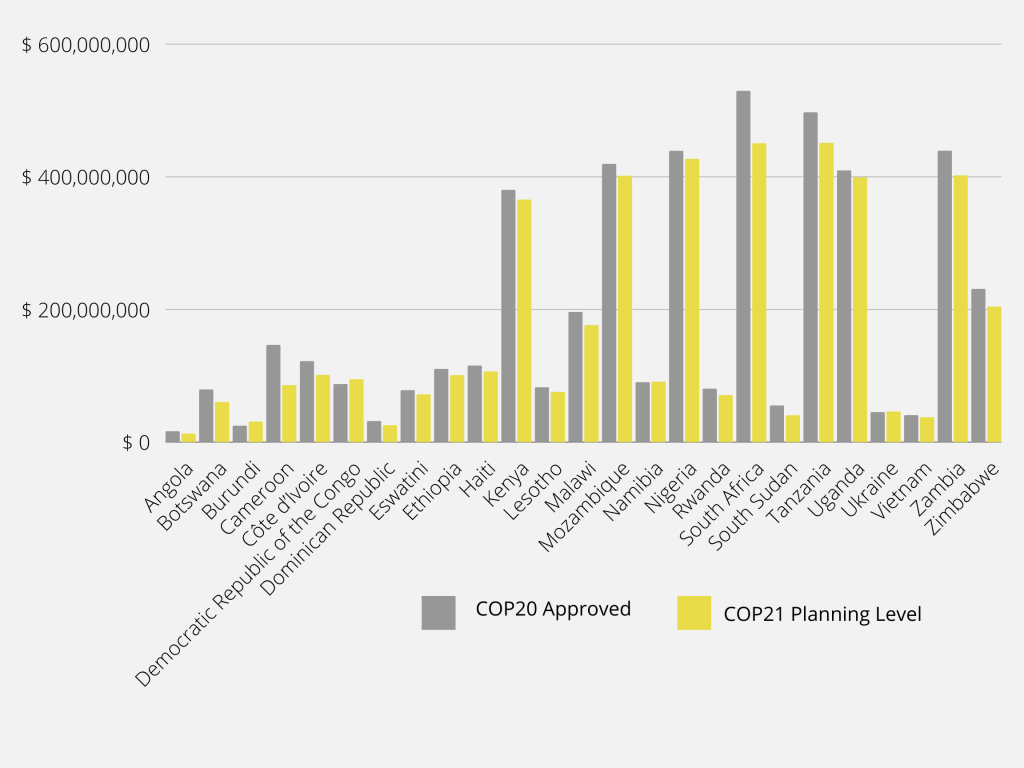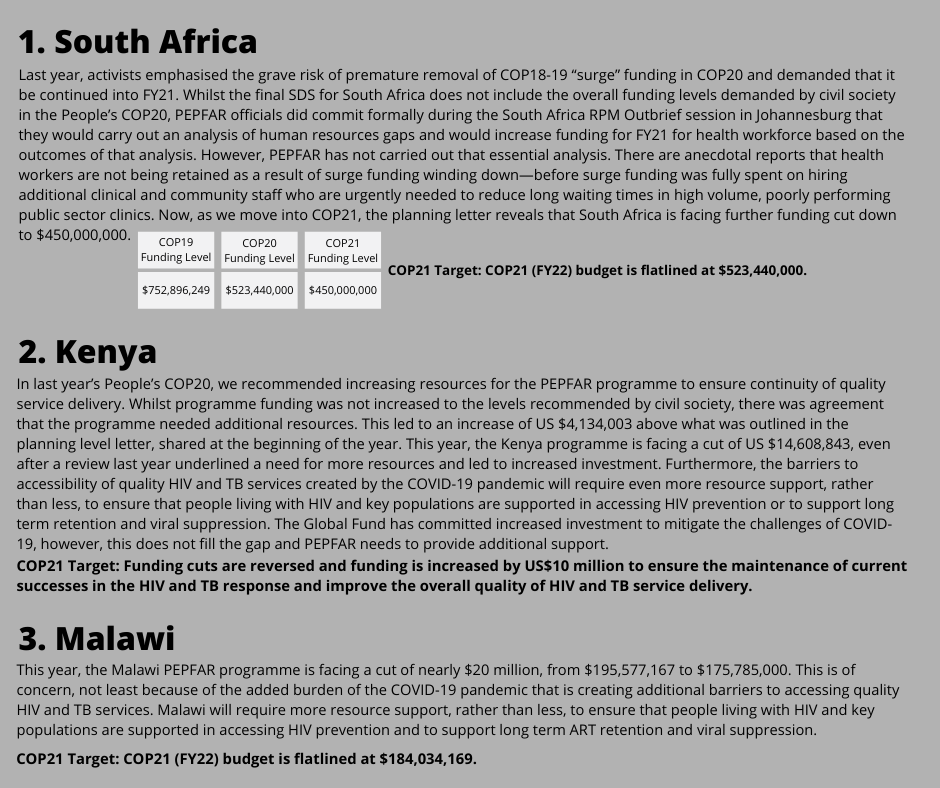Now more than ever, countries need increased PEPFAR resources for an effective HIV response
In the middle of colliding deadly pandemics, PEPFAR under the Biden-Harris Administration is on the brink of making a huge avoidable mistake by slashing funding levels for the majority of PEPFAR countries. PEPFAR cannot have it both ways – rightly demanding progress toward the 95/95/95 UNAIDS goals and also dictating deep cuts to the funding that facilitates the programming that will help end the AIDS epidemic by 2030 and that has been integral to developing the health systems capacity for countries to respond to COVID-19. Activists have been speaking out against funding cuts and flagging what’s at risk. PEPFAR must heed those warnings, restore these cuts, and increase funding in COP21.
PEPFAR releases annual planning level letters for country teams that highlight programmatic strengths, weaknesses, and funding allocations for the coming financial year. PEPFAR began the practice of releasing the letters publicly two years ago in response to calls for transparency from civil society advocates. This year, the planning levels released reveal massive funding reduction across most PEPFAR countries. Compared to the budgets that were approved in COP20, across 25 country programs, the reductions are nearly 9% and more than $416 million off of last year, but no explanation has been provided for why such reductions are being proposed.
These funding levels are especially alarming as countries are already stretching to respond to dangerous gaps created by COVID-19 that have taken a toll on communities and threatened the successes of the PEPFAR program. HIV testing has reduced nearly 40% compared to 2019, and some countries have seen a 25% decline in the number of HIV positive pregnant women accessing services to prevent perinatal HIV transmission. HIV treatment initiation has dropped by 25% across many age groups. Voluntary medical male circumcision (VMMC) over one year fell 74% and there are similar declines in prevention for adolescent girls and young women, such as PEPFAR’s DREAMS program.
COP21 Funding Levels Communicated in January 2021

South Africa – which runs the largest HIV treatment program in the world – is facing a $79 million cut despite a continued gap of three million more people in need of testing, treatment, and support as well as desperately needed scaling up of prevention interventions like pre-exposure prophylaxis. South Africa – as with other countries – is already facing steep economic challenges and health crises compounded by COVID-19. Reducing funding now will threaten the ability to sustain progress in responding to HIV and COVID-19.
Communities have sounded the alarm about funding cuts for key countries over the past two years, but efforts to push back have only led to slight increases – or none at all. In this year’s recommendations communities of people living with HIV across multiple countries continue to demand increases in funding to ensure effective progression in the program’s response as seen below.

Even before the COVID-19 pandemic, nine years of virtual flat funding to PEPFAR has undermined the scale-up of evidence and human rights-based treatment and prevention programs. We also recognise that the decisions of the new Congress over the next four years represent the last chance to put the AIDS response on track in order to attain the global goal of eliminating HIV as a global public health threat by 2030. In the face of these dual pandemics, reducing funding and slowing the program is dangerous.
Despite flat funding, countries with the biggest HIV burdens have made important strides in expanding lifesaving HIV programs, building stronger health systems, and extending prevention and treatment to vulnerable and criminalized communities including gay men, people who use drugs, sex workers, adolescents, pregnant people, and children. These fragile gains, however, will be impossible to sustain without the necessary funding to support the much-needed expansion of services for people living with HIV and communities most affected by HIV.
We, as activists, civil society, key populations, and people living with HIV are calling for the Biden administration to urgently support at least $750 million for FY22 and $2.5 billion over the next 4 years for PEPFAR to ensure rapid restoration and effectively mitigate the harms of HIV prevention, treatment services and COVID-19.
